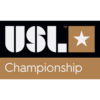
In 2010, the United Soccer Leagues announced the formation of the USL. Ambitious from the get-go, it aimed to start with 14–18 teams in its inaugural 2011 season and expand to 28–32 teams by 2015. Teams like Dayton Dutch Lions FC, Richmond Kickers, and Austin Aztex were among the first to join. The league even attempted to go international with a Caribbean Division, featuring teams from Puerto Rico, Antigua, and Barbuda, later renamed the International Division.
Expansion Over the Years
Starting with 15 teams in its inaugural 2011 season, the USL expanded significantly, peaking with 36 teams in 2019 before recalibrating to 24 in 2023. The partnership with Major League Soccer (MLS) played a significant role in this expansion. By 2015, all 20 MLS teams either fielded their teams in the USL or had affiliations with a USL club.
Inaugural Season and Format
The league kicked off its inaugural season in 2011, featuring a 24-game regular-season schedule. Initially organized into American, National, and International Divisions, the first-ever game saw the Richmond Kickers take down Orlando City SC with a 2-0 win on April 2, 2011.
Issues and Changes
The USL hasn't been without its challenges. Economic and ownership issues led to three Puerto Rican club's expulsion just months after the league began. F.C. New York left after the inaugural season, causing the National and American Divisions to merge into a single eleven-team league.
Notable Developments
In 2015, the UPSL rebranded, shedding the "USL Pro" tag and becoming simply the United Soccer League. It also successfully applied for Division II status, a move that was provisionally approved for the 2017 season. Teams like Orlando City, F.C. Cincinnati, and Nashville SC moved to the MLS. In contrast, others like the Richmond Kickers and Toronto FC II moved down to the third-tier USL League One. Some teams, like Reno 1868 FC, even ceased operations.
MLS Partnership
The USL's partnership with MLS has been a cornerstone of its strategy since 2013. This alliance allowed MLS Reserve teams to affiliate with USL teams. Initially, four MLS clubs partnered with existing USL teams, while others, like the L.A. Galaxy, opted to establish reserve teams.

This website uses cookies and third-party services to create the best possible experience for our users.
By entering and using the website you agree to all terms of service and privacy policy of streetfootie.net.